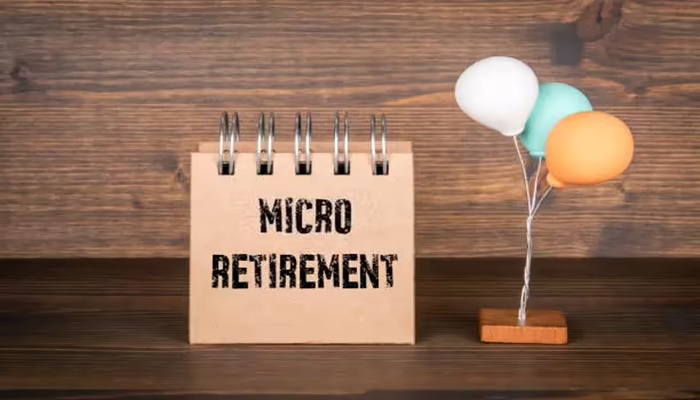Amid the constant transformation of the job market, the requirements to stand out go beyond technical skills and qualifications accumulated throughout education. Recruiters are increasingly paying attention to soft skills, that is, behavioral or socio-emotional skills that affect a person’s daily life in their work environment. They impact the way you interact, communicate and deal with different situations with your team. In this context, developing and improving these skills has become essential to stand out in a highly competitive society.
Unlike technical skills, which focus on being practical skills for professionals and which help to ensure the execution of functions, soft skills can be applied in different professions, contexts and positions. They are increasingly important as they help build closer interpersonal relationships with colleagues, as well as helping to improve leadership and make the company adaptable to changes in the market.
With this in mind, they are increasingly essential to ensure professional success, given that they complement technical skills and help to make your work routine easier and more relaxed. In addition, we can highlight some essential skills for the workplace, such as active listening, clear expression of ideas, the ability to adapt and how you can solve problems creatively.
Soft skills are increasingly valued by employers, as a professional with excellent technical skills but without socio-emotional skills may have difficulty integrating into teams, collaborating effectively and adapting to constant changes.
What are the most important Soft Skills for the job market?
Developing soft skills is an important step to stand out in the job market. That’s why PUCRS Carreiras consultant Ana Cecília Petersen highlights five of them.
1) Communication
Knowing how to communicate is one of the most essential skills for the job market. Communication will help you at different stages of your professional development, which is why investing in courses that help you improve this skill is so important. With good verbal communication, for example, you can be more successful in job interviews, stand out in your day-to-day life and build good relationships that make the organizational climate more effective. In addition, of course, it helps you make a presentation and express an idea. For Ana Cecília, practice is essential to train this skill.
“Recording presentations to analyze your image and voice in audio and video, participating in debate and negotiation groups, going to events that promote interaction and presentations, presenting work in class or events and activities such as theater, help you gain more practice and communicate better at crucial moments.”
2) Emotional intelligence
Going through mood swings and difficult days is normal in everyday life. However, you need to know how to deal with these situations, especially at work. To do this, you need to develop the ability to deal with your emotions.
“To develop emotional intelligence, you can act on each of these parts: acquire knowledge about emotions, self-observe yourself or carry out activities such as psychotherapy to get to know yourself and manage yourself better, in addition to exposing yourself to relationships and interactions with other people”, explains Ana Cecilia.
Through this skill, you can offer emotional support to a colleague on a difficult day, or manage your emotions in such a way that personal problems do not impact your experience at work.
3) Interpersonal relationships
The third soft skill that deserves to be highlighted is interpersonal relationships. This refers to the ability to interact, communicate and collaborate effectively with other people. It is a skill that involves empathy, active listening and the ability to understand and respect the perspectives and feelings of others.
In a work environment, for example, good interpersonal relationships can be the difference between a harmonious environment and a toxic one. Developing interpersonal skills requires self-knowledge, practice, and continuous feedback.
“Look for activities and projects that put you in contact with different people and colleagues, and observe yourself during these interactions to learn about your personality. Asking for feedback from others can give you more information about where you are getting things right and where you are getting things wrong in your relationships.”, highlights Ana Cecilia.
4) Creativity
Creativity is a skill linked to problem-solving and generating innovative ideas. For career advice, developing creativity is based on acquiring new knowledge both in your area of expertise and in different areas to increase your knowledge and perspectives. Therefore, it is essential to participate in activities and projects that challenge conventional thinking, allowing for a diverse and innovative approach. Connecting with people from different backgrounds and experiences is also a valuable way to absorb new perspectives and broaden your creative horizons.
Exercising creativity requires thinking outside the box, challenging established patterns and always looking for new ways to approach problems and situations. A practical tip is to keep a place to record these ideas, whether it be a notebook, an app or any tool that helps to consolidate this new habit of creative thinking that you are cultivating.
5) Self-management
Often referred to as productivity, this skill encompasses aspects such as organization, discipline, focus and the ability to be self-sufficient. Ana Cecília highlights that this skill is essential for an increasingly complex world, with an excess of stimuli and tasks. To effectively develop self-management, she suggests: “Map out where your strengths and weaknesses lie to identify which tool should be used and will be most effective for you: calendars, agendas, to-do lists, organizing schedules for activities, managing your daily or weekly time, prioritizing tasks, breaking down projects into small steps, etc.”.
By incorporating and adapting these tools into your daily life, you will not only be better structuring your activities, but also continually improving your self-management capacity.
Where to apply soft skills development?
Developing soft skills will help you in many aspects of your professional life, such as finding a job, getting back into the job market or getting promoted within a company. However, where can they be applied in practice?
1) Better performance in interviews
Interviews are an important part of the selection process. Doing well in them increases the chances of getting the desired positions and, therefore, building a successful career. In this regard, behavioral skills are also useful and can be improved in a mock interview with PUCRS Carreiras consultants. For example, it is possible to participate in group dynamics and do well, know how to respond to the interviewer’s questions efficiently, stand out for the critical thinking presented in them and much more.
2) Optimizing work performance
Another advantage is having excellent performance in your day-to-day work. This is crucial for you to develop and stand out in your position. By developing behavioral skills, you learn to work well in a team, communicate clearly with all your coworkers, and demonstrate professional ethics.
3) Improved networking
Soft skills are also an important point for networking building. Having a network of contacts is essential to gain access to opportunities, exchange information and advances in the knowledge developed.
If you want to achieve new professional goals, invest in soft skills. Through them, you can create lasting relationships, collaborate on company projects and bring about a real transformation in your work environment.
Source – https://portal.pucrs.br/en/news/education/soft-skills-you-need-to-develop/




















